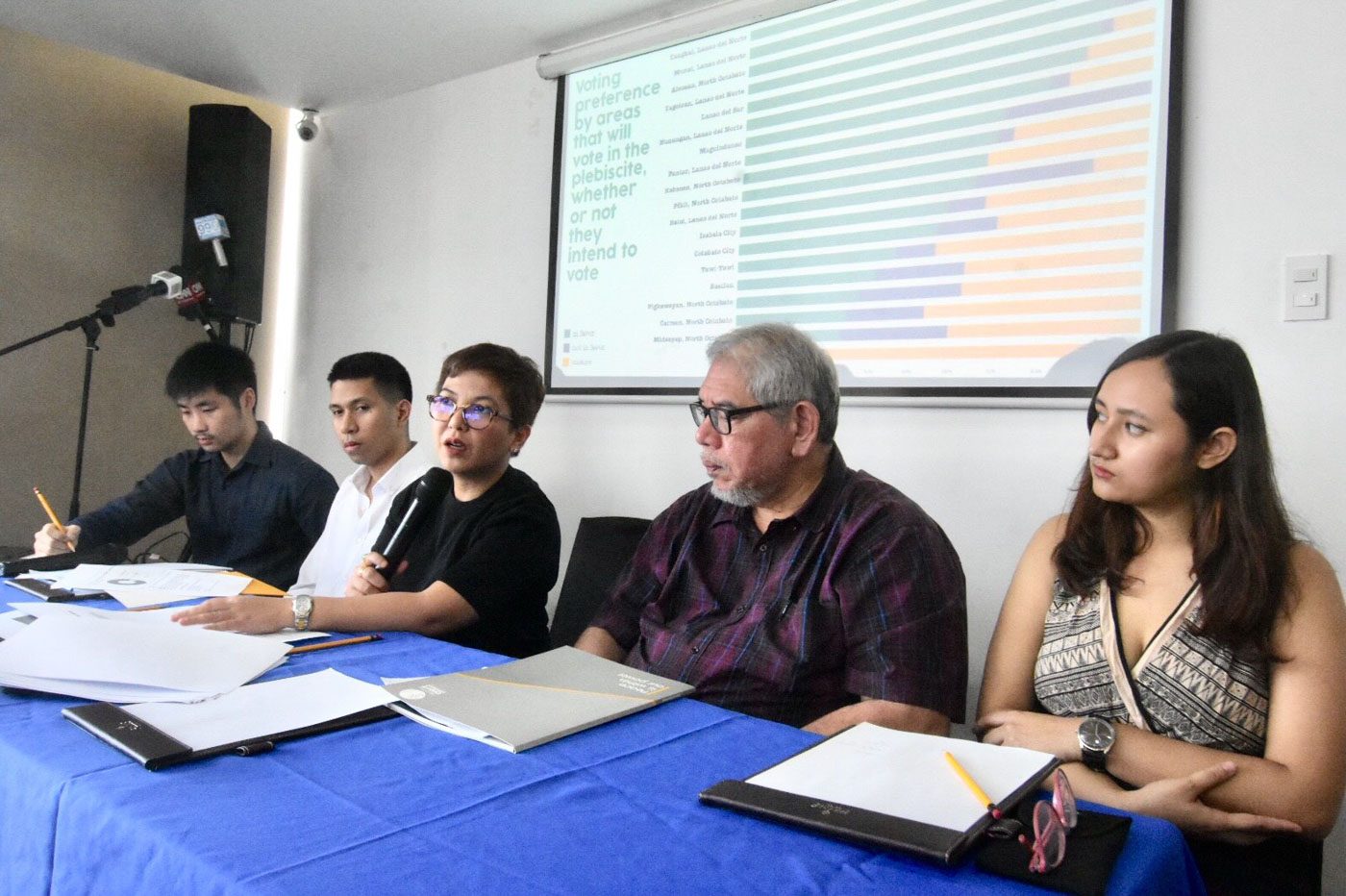SUMMARY
This is AI generated summarization, which may have errors. For context, always refer to the full article.

MANILA, Philippines – A majority of youth in the Autonomous Region in Muslim Mindanao will vote in favor of the Bangsamoro Organic Law (BOL) in January, according to the results of a survey conducted by peace-building organization International Alert Philippines.
The plebiscite for the BOL is set to take place on January 21, 2019. The campaign period for the plebiscite began on Friday, December 7.
The survey, conducted from October 29 to November 19, showed that 60.4% of ARMM youth – whether or not they intend to vote in the BOL plebiscite in January – will vote “yes” for BOL ratification. Meanwhile, 8.9% said they are not in favor while 30.7% were undecided.
The preference for BOL is even more pronounced among ARMM youth who intend to vote. Among this subset, 89.4% said they would vote in favor of the BOL. Only 2.5% said they are not in favor while 8.1% were unsure.
These numbers are mirrored even when factoring in youth voting preference in Mindanao areas not currently part of ARMM but with the option to be included in the Bangsamoro Autonomous Region in Muslim Mindanao (BARMM), the region that will be created when the BOL is ratified.
Youth voting preference in these areas plus in ARMM was 59.8% in favor. For those who intend to vote, it went up to 86.5%.
The youth vote will be critical for the BOL because they comprise 57% or more than half of the 1.69 million voters in ARMM. This translates to around 850,000 votes.
IA defined youth as those aged 18 to 35 years old.
The survey means the government and BOL supporters would do well to get more ARMM youth to vote on January 21.
“Those who said they were going to vote will vote ‘yes.’ This suggests that just by convincing more young people to vote, you will generate wider support for BARMM,” said Francisco Lara Jr, IA senior peace and conflict adviser in Asia.
Youth’s expectations for BOL
The group was also happy to note that a significant majority of ARMM youth – 83.5% – are familiar with the BOL. They know, for instance, that the BOL provides a block grant to the BARMM from the national government and increases the region’s share in resources, said IA country manager Nikki dela Rosa.
But the IA also found that the youth have expectations from the BOL. Almost half of their respondents, 43.3%, think the BOL should address poverty. Almost the same number, 41.5%, think it must address terrorism. In comparison, 30% think the new law should address rebellion.
Dela Rosa said this suggests that those who want BOL to be ratified should promote how the BOL will help lift families from poverty, and not just as a solution to quell rebellion and secessionist moves.
But the ARMM youth are also “managing their expectations” about the BOL. For instance, the youth were polarized when it came to their perception of how effective the BOL will be in weakening armed groups affiliated with the Islamic State (ISIS). (READ: Non-ratification of Bangsamoro Law may leave ‘fertile ground for extremism’)
The youth who are not in favor of BOL disagreed the most with the BOL’s potential to address terrorism and curb government corruption.
Meanwhile, the youth who will vote “yes” for BOL have a strong belief that it will create more government jobs, primarily because the BOL will create new government departments and offices in the BARMM.
While there is general familiarity with the BOL, IA pointed out the need to inform the youth about how the BOL will benefit non-Muslims residing in what will become the BARMM.
This is because the study found that while both the youth in favor and not in favor think the BOL will benefit in varying degrees women, indigenous peoples, minors, and Muslims, those not in favor think non-Muslims will not benefit from the new law.
The IA survey involved 614 youth respondents in some areas that are set to vote in the plebiscite: ARMM provinces, cities of Isabela and Cotabato, towns of Baloi, Munai, Nunungan, Pantar, Tagoloan, and Tangkal in Lanao del Norte; and 6 towns in North Cotabato. – Rappler.com
Add a comment
How does this make you feel?
There are no comments yet. Add your comment to start the conversation.